Racing Rosie
Two weeks before the 2014 Kentucky Derby, Rosalie, my youngest granddaughter turned seven. Since her wish involved horses our family decided to celebrate her birthday at Keeneland. A sunny spring Saturday with a record throng of 35,000.  The dress code was decidedly eclectic: yuppie sportcoats and button-down shirts, jeans and t-shirts, high heels, flip-flops, and too many overdone girly hats.
The dress code was decidedly eclectic: yuppie sportcoats and button-down shirts, jeans and t-shirts, high heels, flip-flops, and too many overdone girly hats.
In my group were two daughters, a son-in-law, two granddaughters, one grandson, my buddy grandpa with wife, and even my second ex-wife, grandma to the little ones. (Time grudgingly heals all wounds.)
At our gathering point just off the parade ring, I casually asked Rosie if she wanted to place a bet. I explained the rules and we scanned the program together with the intensity of a last-chance loser playing with rent money. She picked Bellarmine, because its colors, orange, matched my shirt. We braved the long lines and, on my urging, bet $2 across the board. Our deal: grandpa fronts the bet, Rosie keeps any winnings. Happy birthday.
We re-gathered with the clan and watched in shock as Bellarmine won going away. When Rosie looked at her ticket she suddenly realized it was money. The payoff: $12.20.
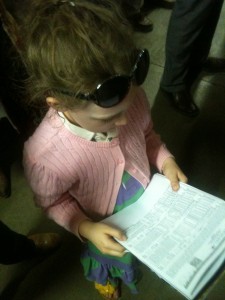 On Race 5, Rosie decided to bet again. This time, following another careful examination of the racing form, she picked Canny Nanny because its colors, yellow, matched her sandals. Another trip through the line, Rosie in my arms, and at the window she watched intently as I relayed our bet to the cashier. My ticket immediately passed into Rosie’s grimy little paws. Her ticket.
On Race 5, Rosie decided to bet again. This time, following another careful examination of the racing form, she picked Canny Nanny because its colors, yellow, matched her sandals. Another trip through the line, Rosie in my arms, and at the window she watched intently as I relayed our bet to the cashier. My ticket immediately passed into Rosie’s grimy little paws. Her ticket.
On the way back to our group I explained what gambling meant, what odds were, and why losing was far more likely than winning, especially given the predominant influence of color on our betting strategy. Then, with our eyes glued to the Teletron, we all watched in awe as Canny Nanny found the outside to win by a length. Paid $20.20.
We were dumbfounded at Rosie’s maiden luck.
Orange and yellow. We decided to leave after the seventh race to beat the crowd, but Rosie tugged on my sleeve and asked to bet one last time. I made the obligatory wise grandfather speech about not getting greedy, to leave a winner. But no dice. So her mom obligingly read down the list on the racing form and as soon as she hit “Ageless” Rosie and I both shouted “that’s it.” Said it reminded her of me, and when I told her the stable colors — gray — she just pointed to my hair.
Despite the long odds, our horse was fate. One last trip through the line, and this time at the window, with my prompting, she announced the bet herself: “Race 7, $2 across, number 11.”
Back at the gathering place we all watched the Teletron as the fillies broke from the gate and Ageless made it clear she had forgotten her namesake. Last one out, maybe even a stumble, and the poor gal hopelessly trailed the field.  With the outcome decided I explained to Rosie how to be a good loser. Then in the final turn, almost as if Ageless heard my admission of defeat, the beast exploded, as if shot out of a cannon, and closed on the field, one by one. Grandpa and Rosie lost control as Ageless came from dead last and won by a nose.
With the outcome decided I explained to Rosie how to be a good loser. Then in the final turn, almost as if Ageless heard my admission of defeat, the beast exploded, as if shot out of a cannon, and closed on the field, one by one. Grandpa and Rosie lost control as Ageless came from dead last and won by a nose.
I don’t know what I was screaming, but I’m sure it wasn’t PG. We all were caught up in a rush of drama that couldn’t have been scripted in Hollywood. Same ticket window, same cashier, same bettor with his granddaughter, and the cashier beamed as he processed the winning ticket: $33.60.
Once the excitement subsided, Rosie realized that I had fronted the bet money and insisted that I take $5 for bankrolling her, and pocked $61. On the way back to our gathering point, Rosie clutched her greenbacks, fanning them like a shameless rookie at Vegas. It had been an exciting, tiring day, and as we waded through the crowd she laid her head on my shoulder.
And I thought: sometimes life brings us unexpected pleasures and unpredictable, unforgettable moments.

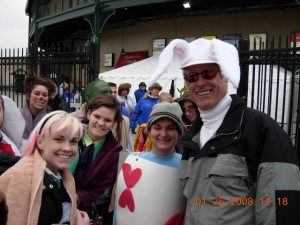
![images[2]](http://www.writerontheriver.com/wordpress/wp-content/uploads/2012/08/images2.jpg)
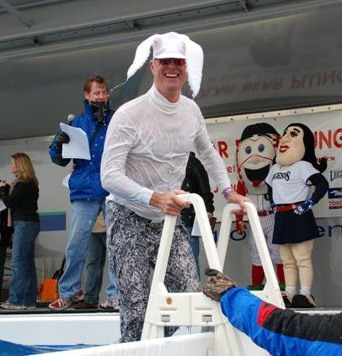
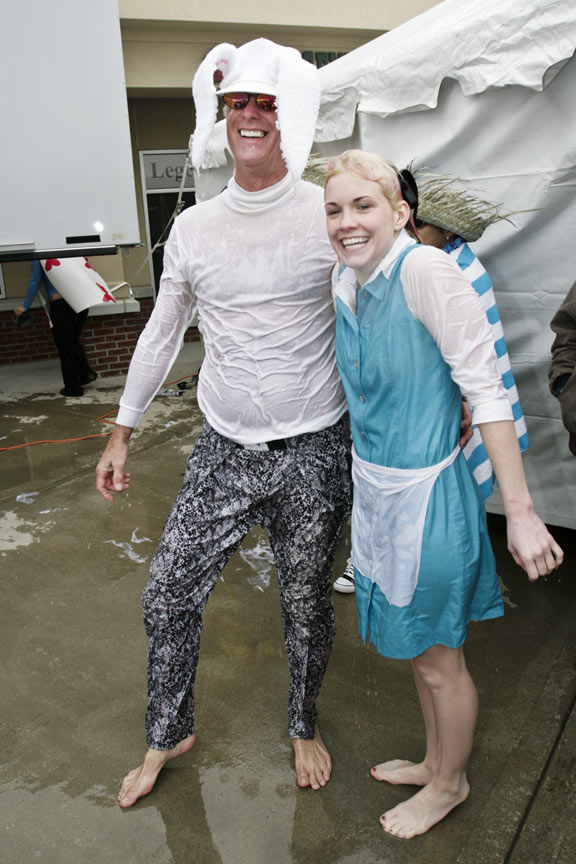



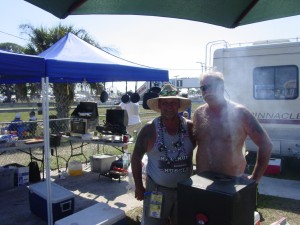



 so would I, I concluded, while I waited in the terminal (inappropriate choice of words I think) for my time to come…my first skydive. A gift from my daughter and step-daughters for Father’s Day.
so would I, I concluded, while I waited in the terminal (inappropriate choice of words I think) for my time to come…my first skydive. A gift from my daughter and step-daughters for Father’s Day.


